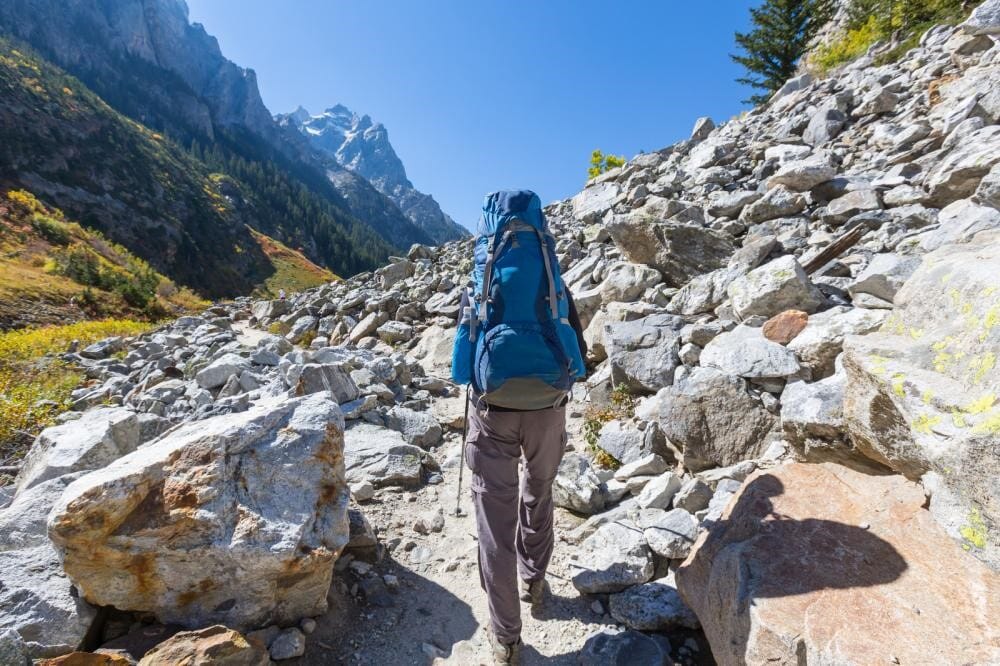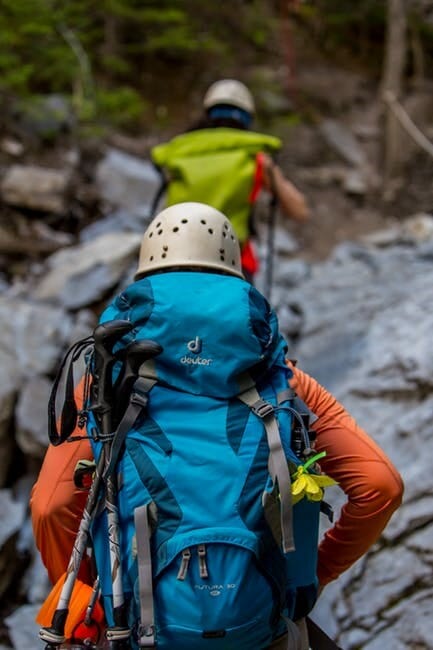Your backpack might be weighing you down as you embark on a journey to seek out what nature has to offer. A heavy backpack is an indication of over packing, and a long term struggle with back pain.

Your spine is made up of 33 bones known as vertebrates and in-between these bones reside shock absorbing discs. Hiking around treacherous terrain with a heavy backpack can be damaging for your spine and posture.
How Low Can You Go
Hiking itself can prove to be an exhausting and stressful physical activity. With the additional burden of your backpack, your hike becomes uncomfortable, exhausting and perilous. The weight of the back pushes you backwards, bending your spine and creating discomfort.
Exhaustion
Your spine works day in and day out to keep you upright—if your back is bending forward or backwards with the weight of the bag, your spine must work overtime to keep you upright. You end up feeling exhausted from the additional stress on your body. This l limits your hiking time and you might even need to take more breaks than usual.
Another cause of exhaustion is the lack of oxygen to your body. Your lungs are equipped to sustain your body weight; any additional weight puts a strain on them. Lack of oxygen supply leaves you tired and irritable in the wild.
Balance Issues
A study showed that people who carried a backpack weighing 30% of their total body weight faced difficulty in balance after 22 minutes of trial. Heavy backpacks add burden on your shoulders and legs, making trekking difficult. Lack of balance can cause injury or pain in back and joints.
Hunching

The way you balance out the weight is essential to your posture. Generally, hikers follow a bottom-up approach when packing, placing light objects in the bottom and heavy on the top. Your backpack puts a strain on your shoulders, and this strain increases as you bend towards ground with heavy gravitational pull.
Weight should be distributed according to your hiking expedition. If you are going up-hill then place the heavier objects on the top to reduce the stress and physical exertion required for the climb. Another study suggests that energy cost requirement is quite low when the weight is supported by the upper back as compared to the lower back.
Pain And Injury
You would want to complete your hiking trip without calling for rescue aid. A heavy backpack increases the odds of this situation by compressing your spine in an unnatural way. You become susceptible to back pain, bad posture, and even nerve damage.
Save Your Spine
- Invest in ultra-light hiking gear and backpack
- The right fit is essential to adequately distribute the bag’s weight.
- Place your sleeping bag in the bottom.
- Save space, pack smartly. Use your gear to pair complementing items together.
- Make sure you don’t strain your muscles by strapping the bag too tightly.
- Wear your hip belt first and then fasten your straps along with load filter. This will evenly distribute the weight among your back and legs.
Make your hiking trips burden free with Light Hiking Gear's ultra-light hiking gear, with front balance bags. Their backpacks are science smart, body friendly and provide you with a natural balance. Place an order now to avail free shipping up to $20.




0 comments